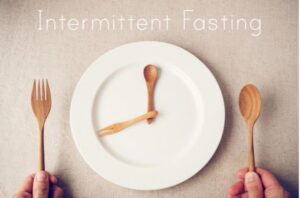By Patrick Cahillane – Life, Executive & Business Coach with One Source International Coaching & Training and Founder of the One Source Personal Development Network

Intermittent fasting (IF) is a popular dietary trend that involves cycling between periods of eating and fasting. This approach to eating has been found to offer numerous health benefits, including weight loss, improved metabolism, and reduced inflammation. However, to experience the benefits of intermittent fasting, it is crucial to follow a proper diet. In this blog post, we’ll explore the best diet for intermittent fasting and the foods to include in your diet.
- High-Fiber Foods: Intermittent fasting can lead to constipation if not done properly, which is why it’s important to incorporate high-fibre foods into your diet. Fibre-rich foods such as vegetables, whole grains, fruits, and legumes can help promote regular bowel movements and maintain gut health. High-fibre foods are also low in calories, which makes them ideal for maintaining a healthy weight.
- Protein: Protein is essential for building and repairing muscle tissues, and it’s also a crucial macronutrient when it comes to weight loss. Including protein in your diet can help you feel fuller for longer, reduce cravings, and support muscle growth. Sources of protein include meat, fish, eggs, dairy, legumes, and nuts.
- Healthy Fats: Contrary to popular belief, fats are not always bad for your health. In fact, including healthy fats in your diet can provide numerous health benefits. Foods rich in healthy fats such as avocados, nuts, seeds, olive oil, and fatty fish can help improve heart health, lower inflammation, and promote brain function.
- Whole Foods: Processed foods are often high in calories, sugar, and unhealthy fats. To get the most out of your intermittent fasting diet, it is essential to focus on whole foods. These foods are nutrient-dense and can provide your body with the necessary vitamins and minerals it needs to function optimally. Whole foods include vegetables, fruits, lean protein, healthy fats, and whole grains.
- Balanced Meals: When following an intermittent fasting diet, it’s important to focus on balanced meals that include a combination of all the necessary macronutrients. Balanced meals can help prevent blood sugar crashes, reduce cravings, and promote satiety. A balanced meal should include a source of protein, healthy fat, and complex carbohydrates.
- Hydration: Staying hydrated is essential when following an intermittent fasting diet. Drinking plenty of water can help flush out toxins from your body, improve digestion, and reduce hunger pangs. Additionally, drinking water can help keep you feeling full and prevent overeating during your eating windows.
- Avoid Refined Sugar and Processed Foods: Refined sugar and processed foods are high in calories and can lead to weight gain. These foods can also cause inflammation in your body, which can lead to various health problems. To get the most out of your intermittent fasting diet, it’s important to avoid or limit your intake of refined sugar and processed foods.
Overall, the best diet for intermittent fasting is a balanced and nutrient-dense diet that includes high-fibre foods, protein, healthy fats, whole foods, and plenty of water. When following an intermittent fasting diet, it’s important to focus on eating nutritious foods that provide your body with the necessary nutrients it needs to function optimally. Additionally, it’s essential to avoid or limit your intake of refined sugar and processed foods. By following these guidelines, you can experience the many benefits of intermittent fasting while maintaining optimal health.
If you would like to learn more about managing your health & fitness, improving your relationships, personal growth or managing your finances, download our FREE 72 Page PDF E-Book – Personal Development – A Systematic Approach
